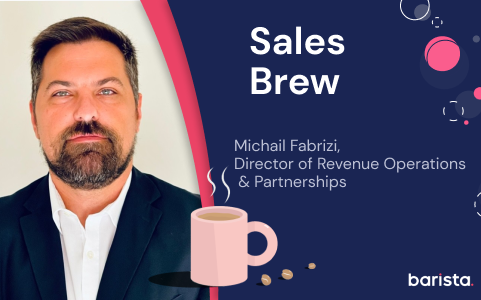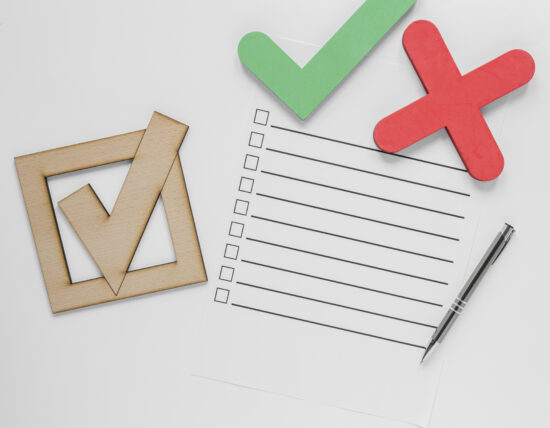Having meeting goals for every sales call is crucial
barista editorial board
Having sales meeting goals for every call seems obvious, but rarely truly guides reps for their calls. The good news is that by following a few steps, it could be easily done, and deals will be more easily closed.
Why you can’t give up on setting meeting goals
Have you ever walked into a meeting wondering “what am I doing here”? Chances are you have and if so, you know it is not the feeling you want your clients to have. Relationship building with potential clients is a delicate process. If you’re starting on the wrong foot, it’s over before it even begins.
And I get it, you’re in back-to-back meetings every day (thanks dear marketing team). But that’s exactly why it matters. You are killing yourself to get this another deal, you’re staying up at night taking yet another call. In your spare time, you answer legal questionnaires. Make it count. By defining your meeting goals ahead of time, you will save time in preparations, be more flexible on a call, and make every second of that call valuable for your client.
How to set the right goal for the right meeting
There are different kinds of goals for different kinds of meetings. Before you try to define your goal, ask yourself what this kind of meeting is and why it appeared on my calendar. Put yourself into the client’s shoes and decide what could be potential goals for her, and based on that build a pull of potential goals for these kinds of meetings. Before every meeting, return to this pull and choose the goal that suits your client and thus, you. When you pick a goal from a quality list, you will naturally check out the others.
By defining a goal based on the elimination process, you’ll not just define what is your goal, but also define what aren’t your goals. This process will reveal what you know about your client, how you know it, and what matters. This way you’ll be much more focused and prepared and the agenda for the meeting will build itself. This exercise will help you skip generic questions. Instead, you will focus on asking your client questions you truly need to ask. In addition, you will provide your client with the value she really wants to get.
A use case: first call from a demo request
Let’s try to make this exercise for a first inbound call with a client. There are 3 main goals you could pursue here:
- Qualify the client
- Reveal the client’s main problems and build trust
- Move to demo (now or in another call)
Do I need this call exclusively to qualify the client?
If your answer is yes, because you know very little about her even after you’ve researched, good. Build an agenda for the call that reflects that. Write qualification questions you want to ask that you couldn’t find anywhere else, and there you have it.
If your answer is no, it means you know the client is qualified. Write for yourself how you know she is qualified, move on to the next call and build the agenda according to these qualifications.
Do I need this call to know what my client’s main problems are?
If your answer is yes, there you have it. Build an agenda and list questions that are aimed at revealing the main challenges you could solve for your client. Make sure it is based on the reason she is qualified, so you won’t exhaust her and lose her attention.
If your answer is no, you probably got a solid hunch on what her main problems are. Write your hypotheses down, and prepare to drill down to them on the call, and perhaps demonstrate how you could solve them.
Do I need a second call to demonstrate?
If your answer is yes, ask yourself why? Is it because you got the problems wrong? Or is it because you need another stakeholder to get the buy-in? Either way,
If your answer is no, your goal is to nail a demo. Demonstrate on the first call. There’s no reason to make a discovery call just for the sake of it. You know she is qualified, you know her problem, build the right demo for her. When you want to buy a TV, you want to see for yourself how it works right away. You don’t want the shopper to ask you about the problems with your current one or whether you watch more Netflix or sports. This is how your client feels in this case. So let the product sell itself from the get-go this time.
The goal is your call’s northern star
It sounds obvious, but so many reps fail in doing so. A full calendar is not an excuse not to set goals for your meetings, as there’s no reason to have it full without being prepared. Set the right goal, build an agenda properly and have it by your side on the call. You’ll be surprised how it will improve your closing rates. We at barista AI already know that 🙂


